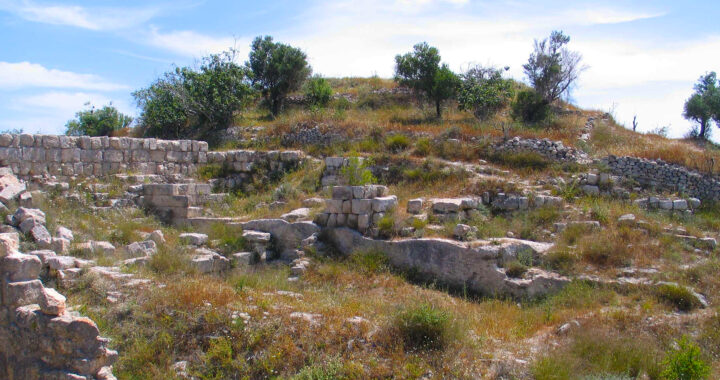Israeli authorities advanced a plan on 11 November 2025 to expropriate about 1800 dunams or 1.8 million square meters of land surrounding the Sebastia archaeological zone in the northern West Bank. Data released by Peace Now described this as the largest seizure of archaeologically relevant territory initiated in recent years under Israeli control.
Government documents identified parcels near Sebastia and Burqa that include thousands of olive trees cultivated by Palestinian farmers. Peace Now explained that the entire targeted land is fully registered in the Palestinian land registry and includes privately owned agricultural areas that are crucial to local livelihoods and seasonal harvest activities.
The official public notice from the Civil Administration in Judea and Samaria said that it plans to take over the archeological site for development. Israel allocated more than 30 million shekels in 2023 to upgrade access routes and tourist facilities. It said that conservation requires oversight, enhanced security, and new infrastructure to improve access.
Sebastia contains ruins linked to the capital of the northern Israelite kingdom called Samaria. The site is also significant among Christian and Muslim communities because it contains tombs linked to John the Baptist. It also contains Roman-era structures. UNESCO included Sebastia on the tentative World Heritage list under the State of Palestine in 2012.
Human rights groups warned that the order could further restrict Palestinian access to farmland and disrupt Palestinian tourism operations that previously offered guided visits to the ancient ruins. Advocates pointed to earlier expropriation in Deir Qala and Deir Samaan where similar actions resulted in Palestinian exclusion following settlement expansion.
Palestinians have 14 days to file objections under the order. Legal analysts noted that international humanitarian law authorizes expropriation in occupied territories only when actions serve local population needs. Peace Now contended that development plans reflect Israeli priorities rather than Palestinian community requirements or cultural programs.
Regional tensions increased as a new settler outpost appeared near Bethlehem during the same week. Etzion council chair Yaron Rosenthal characterized the outpost as a return to historically significant ground linked to Rachel and King David. Local monitoring groups reported expanded settler activity despite growing international criticism of settlement growth.
International bodies reiterated that Israeli settlements in the West Bank are considered illegal under global legal frameworks. Diplomatic observers warned that renewed expropriation, combined with settlement expansion and rising settler violence reports, may intensify diplomatic pressure on Israel and deepen instability across affected Palestinian communities.
FURTHER READING AND REFERENCE
- Civil Administration in Judea and Samaria. 2025. “Notice of Intent to Expropriate Sebastia Archaeological Site.” Civil Administration in Judea and Samaria. Available online
- Peace Now. 19 November 2025. “Civil Administration Announces Intent to Seize Approximately 1,800 Dunams at the Sebastia Archaeological Site.” Peace Now. Available online
Photo Credit: Bukvoed / Shomron National Park / 2014 / Adapted / CC BY 3.0
